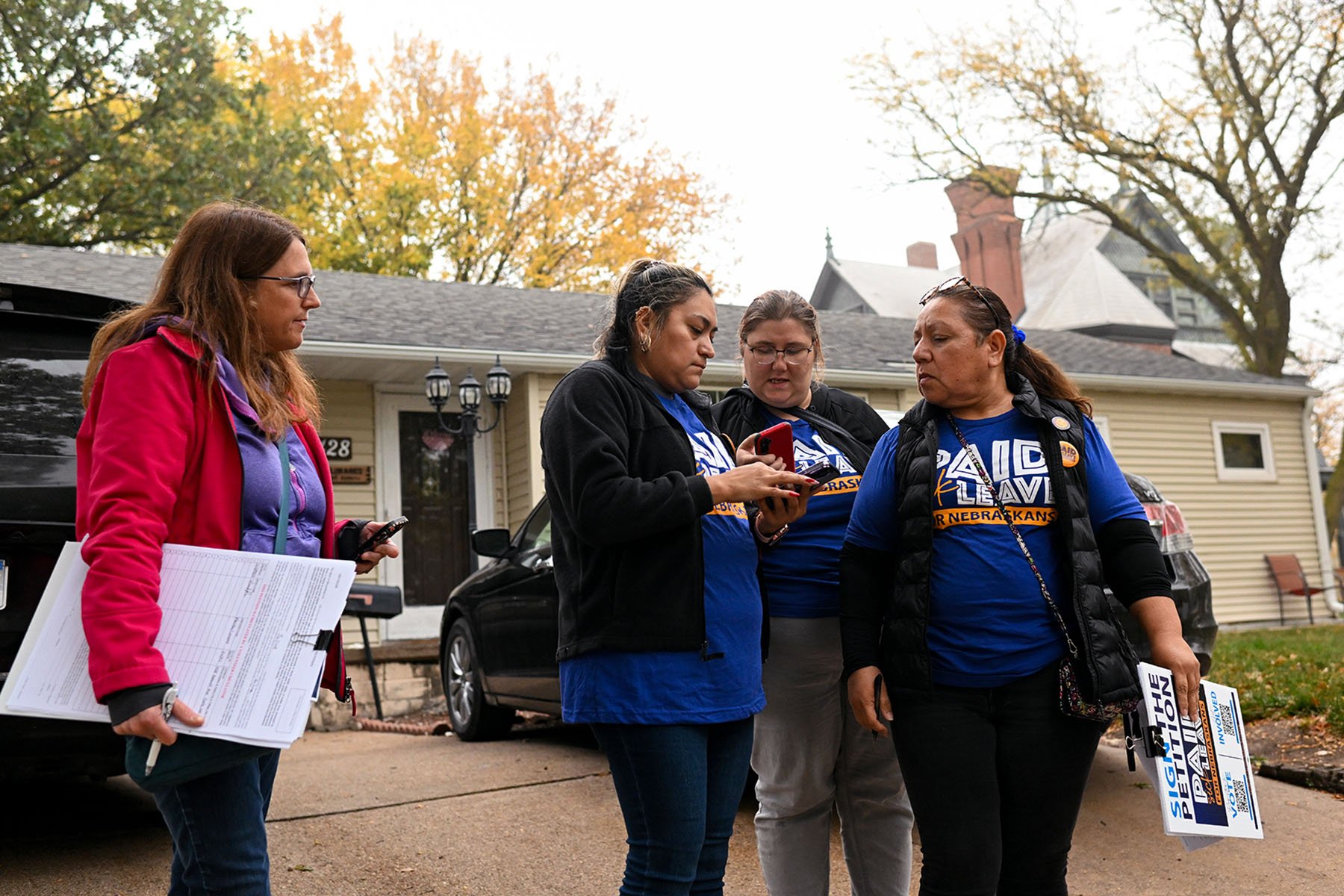In every state where paid sick leave was on the ballot, voters approved it. On Election Day, measures in Missouri, Alaska and Nebraska passed by wide margins: In Alaska, 57 percent of voters approved it, in Missouri it was 58 percent and in Nebraska a whopping 74 percent.
The three new initiatives will give workers earned sick time depending on the size of their employer. If the business has 15 or more workers in Missouri and Alaska, or 20 or more in Nebraska, workers earn up to 56 hours of paid sick time a year. That’s equivalent to seven days if they work eight-hour shifts. Those who work for smaller businesses can earn up to 40 hours a year, or five eight-hour days.
The paid leave laws go into effect in May (Missouri), July (Alaska) and October (Nebraska).
Workers can use the time in case of illness or to care for a family member who is sick. The benefit is considered critical to help support and retain low-wage workers, who are the most likely to have limited or no access to paid sick time. The majority of them are women.
About 80 percent of workers in the country get some paid sick time, but among the lowest earners, only 38 percent do. Different industries provide different levels of leave. Only half of hospitality and food service workers — who are predominantly women — get paid sick time.
The United States is one of a handful of countries that doesn’t have a national-level paid leave policy, and so over the years, states have created their own measures guaranteeing either paid sick leave, paid parental leave or both.
-
Read Next:
With the three new laws, 18 states and Washington, D.C., now have their own guaranteed paid sick time laws. Alaska’s and Missouri’s ballot measures will also increase those states’ minimum wages up to $15 an hour, following in the footsteps of 30 other states. The federal minimum wage is $7.25 an hour and hasn’t been raised in 15 years.
Inimai Chettiar, the president of A Better Balance, the nonprofit organization that helped draft the three ballot measures, said that, as the voting results show, “paid sick time is a winning issue that is overwhelmingly beneficial for families and popular among voters across party lines.”
“In an uncertain time for workplace justice at the federal level, we know that state-level victories like these will continue to play a critical role in advancing new rights for workers and caregivers,” Chettiar said in a statement. “State advances also show federal policymakers a path forward for popular, common-sense measures to ensure workers can care for themselves and their loved ones.”
All three states that passed the measures also supported President-elect Donald Trump, a result experts have highlighted as evidence that “progressive policies” like the minimum wage and paid leave have strong salience with voters regardless of party affiliation.
“What we know is: Workers need paid sick leave. Workers needed paid sick leave last week, they’ll need it tomorrow, they’ll need it in a year,” said Molly Weston Williamson, a senior fellow with the Center for American Progress, a progressive think tank. “Voters don’t see these as partisan issues. Voters see the minimum standards. They see these as a central right that everyone ought to have. And when voters have the opportunity to express that at the ballot box, they bring that message home loud and clear.”
-
Previous Coverage:
-
Previous Coverage: It’s almost Election Day. Where is the paid parental leave policy?
Neither Trump nor Vice President Kamala Harris made any promises about what paid sick or parental leave policy they would pass as president. Harris, however, talked about the issue far more broadly than Trump, who did not mention it on the campaign trail.
During his first term, Trump signed a coronavirus bill that expanded paid sick leave benefits and included a provision that allowed parents to take up to 12 weeks of paid sick leave at two-thirds pay to care for a child whose school or day care had been shuttered due to COVID-19. It ultimately expired and wasn’t extended by Congress.
Trump also signed a defense bill that guaranteed 12 weeks of paid parental leave for federal employees, a policy priority of his daughter and adviser, Ivanka Trump, who is expected to not play a role in a second term.
It’s unclear if he will pursue any kind of paid leave policy in his second term.







